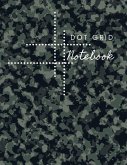The diacritical point in Syriac is confusing at best. All students are aware of the dots on letters like resh and daleth the same way English readers are aware of the dots on letters like i and j, but most people do not know why they are there. In his new book, Dr. Kiraz peels back the story of the dot layer by layer to discover its origin and use in Syriac orthography. Beginning with dots on resh and daleth, the book moves on to the development of plural dots, and then examines the use of dots to distinguish between homographs and the rationale behind dot placement. Kiraz conducts experiments with modern scribes to construct a theory of the origin of the dot. He also discusses the development of the dot to mark hard and soft consonants, and later, silent letters. From these early uses, dots became an increasingly important part of Syriac writing. Kiraz traces the beginnings of using dots to mark gender and tense, as well as increasingly sophisticated sounds, to the dot's role in signifying vowels, vowel sequence, accents, and punctuation marks. Finally, the book examines the dot in the medieval and modern periods, providing some insight into the role of dots when producing Syriac and garshuni manuscripts.
Hinweis: Dieser Artikel kann nur an eine deutsche Lieferadresse ausgeliefert werden.
Hinweis: Dieser Artikel kann nur an eine deutsche Lieferadresse ausgeliefert werden.








